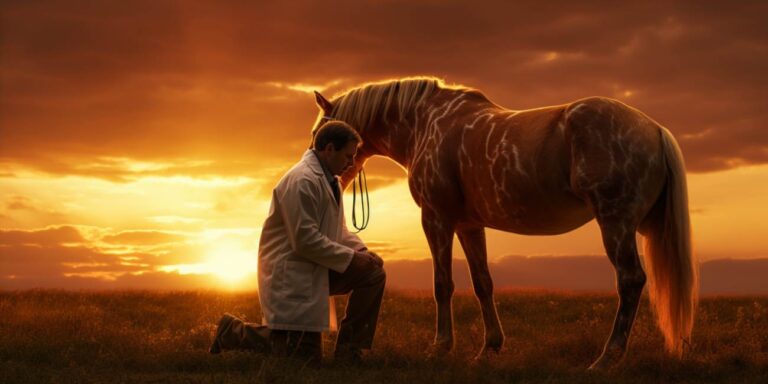As horse enthusiasts and caretakers, it’s essential to be well-informed about various health issues that can affect our equine companions. One such condition that frequently arises in horses is Cushing’s disease. In this comprehensive guide, we will delve into what Cushing’s disease is, its causes, symptoms, diagnosis, treatment options, and preventive measures to ensure the well-being of your beloved horses.
What is cushing’s disease in horses?
Cushing’s disease in horses, also known as pituitary pars intermedia dysfunction (PPID), is a hormonal disorder that primarily affects older horses, typically those over the age of 15. This condition originates in the pituitary gland, which is a small gland located at the base of the brain. The pituitary gland plays a vital role in regulating various hormones in the body, including those that control metabolism and stress responses.
Causes of cushing’s disease in horses
The exact cause of Cushing’s disease in horses is not fully understood, but it is believed to be linked to age-related changes in the pituitary gland. One of the key factors in the development of this condition is the overproduction of a hormone called adrenocorticotropic hormone (ACTH). Elevated levels of ACTH can lead to various health issues in horses.
Signs and symptoms
Recognizing the signs and symptoms of Cushing’s disease in horses is crucial for early intervention. Common clinical signs include:
- Excessive hair growth or failure to shed winter coat
- Weight loss
- Increased thirst and urination
- Muscle wasting
- Abnormal fat distribution, often resulting in a pot-bellied appearance
- Laminitis (painful inflammation of the hoof)
- Recurrent infections
- Delayed wound healing
If you notice any of these symptoms in your horse, it’s essential to consult with a veterinarian for a proper diagnosis and treatment plan.
Diagnosis
Diagnosing Cushing’s disease typically involves a combination of clinical observations, blood tests, and imaging studies. A veterinarian will evaluate your horse’s overall health, conduct hormonal tests to measure ACTH levels, and may perform imaging, such as an ultrasound, to assess the size of the pituitary gland.
Treatment options
While there is no cure for Cushing’s disease in horses, several treatment options can help manage the condition and improve the quality of life for affected animals:
- Medications: The most common treatment is the administration of medications such as pergolide or cyproheptadine, which can help regulate hormone levels.
- Dietary Management: A controlled diet with low-sugar and low-starch content can be beneficial in managing Cushing’s disease.
- Regular Exercise: Providing regular exercise and turnout can help maintain muscle tone and overall health.
Preventive measures
Preventing Cushing’s disease involves good management practices, especially for older horses:
- Regular Veterinary Checkups: Schedule routine checkups to monitor your horse’s health and catch any issues early.
- Proper Nutrition: Ensure your horse’s diet is balanced and appropriate for their age and activity level.
- Environmental Management: Create a safe and stress-free environment for your horse.
Q: can cushing’s disease be cured in horses?
A: Cushing’s disease cannot be cured, but it can be managed with medications and proper care to improve the horse’s quality of life.
Q: are there any side effects of cushing’s disease medications?
A: Some horses may experience mild side effects from medications, but these can often be managed with dose adjustments. Consult with your veterinarian for guidance.
Q: is cushing’s disease hereditary in horses?
A: Cushing’s disease is not believed to be directly hereditary, but some breeds may be more prone to developing the condition.
Q: can younger horses get cushing’s disease?
A: While Cushing’s disease is more common in older horses, it can occasionally affect younger animals. It’s essential to monitor all horses for any signs of the condition.
In conclusion, being knowledgeable about Cushing’s disease in horses is essential for every horse owner. Early detection, proper management, and veterinary care are key to ensuring a happy and healthy life for your equine companion.
See also:





